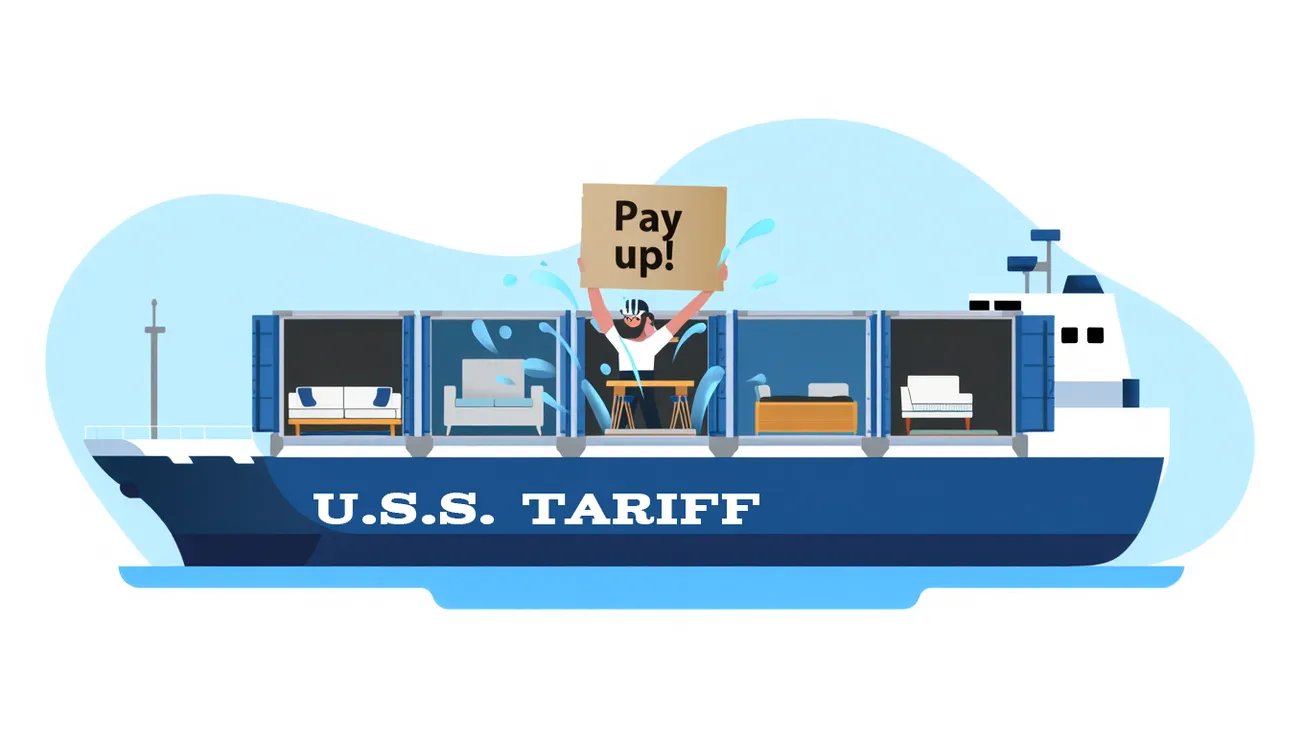Thinking about new kitchen cabinets, a recliner that’s easier to get out of, or one last home improvement before winter? You might want to get moving — or at least get smart — before prices jump and contractors start rewriting your estimate.
A fresh wave of import tariffs on furniture, cabinets, and wood products is about to make common home upgrades more expensive. And for older adults on fixed incomes, that’s more than a nuisance — it’s real financial pain.
The New Tariffs and What They Mean for You
Beginning this month, the Trump administration is imposing new import taxes on furniture and lumber, aimed at boosting domestic manufacturing. But economists warn the result will likely be higher prices for U.S. consumers, not lower.
Here’s what’s taking effect:
- 10% on imported wood and timber (including the materials used in cabinetry and flooring)
- 25% on upholstered furniture such as sofas and chairs — rising to 30% on January 1
- 25% on kitchen cabinets and vanities, jumping to a painful 50% on January 1
That means a $5,000 kitchen remodel could cost you an extra $1,000 or more by early 2026 — and a simple furniture update could suddenly feel like a luxury.
Even manufacturers that make most of their goods in North America say prices are likely to rise. Ethan Allen’s CEO said tariffs “will affect the entire industry.” Others, like Naturepedic, an Ohio mattress company, are already planning 5–10% price hikes.
The Hidden Pain for Seniors
For many older adults, home upgrades aren’t about keeping up with the Joneses — they’re about comfort, safety, and independence. Softer seating, adjustable cabinets, slip-resistant floors — these are real quality-of-life improvements.
But here’s where the pain sets in:
- Sticker shock when quotes suddenly jump due to tariffs or supply shortages.
- Contractor confusion when an “estimate” turns out to be more of a “maybe.”
- Budget stress when unexpected “add-ons” appear halfway through a job.
Many seniors tell us they feel pressured to make quick decisions before prices rise, or worse — they end up paying more than the original quote and can’t prove what they were promised.
How to Prevent That Pain: Lock in Your Price
1. Get a Fixed Price Quote, Not an Estimate
An estimate is a guess. A fixed price quote is a commitment. Ask directly:
“Is this a firm quote, or just an estimate?”
Get the answer in writing, signed and dated. Only sign a contract that clearly states the price will not change unless you approve written changes.
2. Put Everything in Writing
Every home job — no matter how small — should include:
- A detailed scope of work (materials, brands, finishes)
- Start and completion dates
- A payment schedule (never more than 30% upfront)
- A clause requiring written approval for any added charges
If the contractor pushes back, find another one. Honest pros don’t mind paperwork.
3. Ask for a “Price Hold” Window
If you’re not ready to start immediately, ask your contractor to guarantee the price for 30 or 60 days. Add this language:
“This quote is valid for 60 days and includes all labor and materials listed. Prices will not change within this period unless the scope of work is modified in writing.”
That single sentence could save you thousands.
4. Watch for “Escalation” Clauses
Some contracts quietly allow contractors to raise prices if their material costs increase. You can negotiate a cap (say, 5%) or strike the clause altogether. And if prices rise, ask to see supplier invoices before approving anything new.
5. Hold a Retainage
Keep 10% of the total payment until the project is finished and you’re satisfied. It gives the contractor an incentive to finish on time and meet your expectations.
6. Pay by Check or Credit Card
Avoid cash. Paying by card or check gives you documentation — and possible protection through your bank if something goes wrong.
7. Know Your Rights
Most states require written contracts for jobs over $500–$1,000. You also have a three-day cooling-off period to cancel. If a contractor refuses to give you written terms, contact your state’s consumer protection office or attorney general.
The Takeaway: A Little Paperwork Prevents a Lot of Pain
For seniors, home improvements aren’t just about aesthetics — they’re about living comfortably and safely for years to come. But in this tariff-fueled economy, even a simple upgrade can turn into a financial headache if you don’t protect yourself.
Before you sign anything, remember this golden rule:
If it isn’t written down, it doesn’t exist.
Disclaimer: Smart Senior Daily provides consumer information and guidance designed to help readers make informed decisions. This article is for informational purposes only and does not constitute financial, legal, or contractual advice. Before entering into any agreement or making significant purchases, consult with a licensed contractor, attorney, or financial advisor familiar with your state’s laws and regulations. Smart Senior Daily does not endorse specific contractors, products, or political positions.








